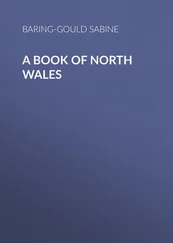Sabine Baring-Gould - Domitia
Здесь есть возможность читать онлайн «Sabine Baring-Gould - Domitia» — ознакомительный отрывок электронной книги совершенно бесплатно, а после прочтения отрывка купить полную версию. В некоторых случаях можно слушать аудио, скачать через торрент в формате fb2 и присутствует краткое содержание. Жанр: foreign_antique, foreign_prose, Историческая проза, на английском языке. Описание произведения, (предисловие) а так же отзывы посетителей доступны на портале библиотеки ЛибКат.
- Название:Domitia
- Автор:
- Жанр:
- Год:неизвестен
- ISBN:нет данных
- Рейтинг книги:4 / 5. Голосов: 1
-
Избранное:Добавить в избранное
- Отзывы:
-
Ваша оценка:
- 80
- 1
- 2
- 3
- 4
- 5
Domitia: краткое содержание, описание и аннотация
Предлагаем к чтению аннотацию, описание, краткое содержание или предисловие (зависит от того, что написал сам автор книги «Domitia»). Если вы не нашли необходимую информацию о книге — напишите в комментариях, мы постараемся отыскать её.
Domitia — читать онлайн ознакомительный отрывок
Ниже представлен текст книги, разбитый по страницам. Система сохранения места последней прочитанной страницы, позволяет с удобством читать онлайн бесплатно книгу «Domitia», без необходимости каждый раз заново искать на чём Вы остановились. Поставьте закладку, и сможете в любой момент перейти на страницу, на которой закончили чтение.
Интервал:
Закладка:
Then he thrust his hand into the folds of his toga, and withdrew, to be at once attacked and wrangled with by the Chaldæan.
Domitia, who had listened with indifference, turned to her mother as soon as he was gone, and said —
“The Summum Bonum , the crown and glory of Philosophy is to become in mind what the slave becomes after many bastinadoes, as callous in soul as he is on the soles of his feet. The lesson of life is not worth the acquisition.”
“I think he put it all very well.”
“Why are the strokes applied? Why should we bear them without crying out? After all, what profit is there in this philosophy?”
“Really, my dear, I cannot tell. But it is the correct thing to listen to and to talk philosophy, and good families keep their tame stoics, – even quite new and vulgar people, wretched knights who have become rich in trade – in a word, they all do it.”
“But, mother, what is this Highest Good?”
“You must inquire of Claudius Senecio himself. It is, I am sure something very suitable to talk about, on such solemn occasions as this.”
“But what is it? A runner in the course knows what is the prize for which he contends, a singer at the games sees the crown he hopes to earn – but this Highest Good, is it nothing but not to squeal when kicked?”
“I really do not know.”
“Mother, would to the Gods I did know! My sorrow is eating out my heart. I am miserable. I am in darkness, like Theseus in the labyrinth, but without a clue. And the Highest Good preached by philosophy is to sit down in the darkness and despair of the light. I want to know. Has my father’s life gone out forever, like an extinguished torch cast into the sea? or is it a smouldering ember that may be blown again into flame?”
“Have you not heard, Domitia, how Senecio has assured you that your father will live.”
“Where?”
“On the page of history.”
“First assure me that the page will be written, and that impartially. What I know of historians is that they scribble all the scurrility they can against the great and noble, in the hope of thereby advancing the credit of their own mean selves. Has a man no other hope of life than one built on the complaisance of the most malignant of men?”
“My dear, – positively, I do not know. You turn my head with your questions. Call Plancus that I may scold him, to ease my overwrought nerves. The fellow has been stopping up his wrinkles with a composition of wax, lard and flour, and really, at his age, and in his social position – it is absurd.”
“But, mother, I want to know.”
“Bless me, you make me squeamish. Of course we want to know a vast number of things; and the Highest Good, I take it, is to learn to be satisfied to know nothing. Cats, dogs, donkeys, don’t worry themselves to know – and are happy. They have, then, the Summum Bonum . If you want to know more, ask the philosopher. He is paid for the purpose, and eats at our expense, and ye gods! how he eats. I believe he finds the Highest Good in the platter.”
The lady made signs, and a slave, ever on the watch, hastened to learn her desire, and at her command summoned the Stoic.
The philosopher paced the deck with his chin in the air, and came aft.
“My daughter,” said the widow, “is splitting my suffering head with questions. Pray answer her satisfactorily. Here Felicula, Procula, Lucilla, help me to the cabin.”
When the lady had withdrawn, the philosopher said:
“Lady, you will propound difficulties, and I shall be pleased to solve them.”
“I ask plain answers to plain questions,” said Domitia. “At death – what then?”
“Death, young lady, is the full stop at the end of the sentence, it is the closing of the diptychs of life, on which its story is inscribed.”
“I asked not what death is – but to what it leads?”
“Leads! – it – leads! ahem! Death encountered with stoic equanimity is the highest point to which – ”
“I do not ask how to meet death, but what it leads to. You seem unable or unwilling to answer a plain question. My dear father, does he live still – as a star that for a while sets below the horizon but returns again?”
“He lives, most assuredly. In all men’s mouths – on the snowy plains of Germany, on the arid wastes of Syria, the fame of Cnæus Domitius Corbulo – ”
“I asked naught about his fame, but about himself. Does he still exist, can he still think of, care for, love me – as I still think of, care for, love him – ”
Her voice quivered and broke.
“Young lady – Socrates could say no more of the future than that it is a brilliant hope which one may run the risk of entertaining. And our own Immortal Cicero declared that the hope of the soul living after death is a dream, and not a doctrine. The Immortals have seen fit to cut the thread of his life – ”
“The Immortals had no scissors wherewith to do it. He fell on his own sword. Is there a soul? And after death where does it go? Is it a mere shadow?”
“My dear lady, philosophy teaches us to hope – ”
“Natural instinct does that without the cumbrous assistance of philosophy – but what is that hope built on?”
“I cannot tell.”
“Then of what avail is it to lead a good life?”
“On the page of history – ”
“That is where the great man lives – but the poor girl or the mechanic? Of what avail is a good life? What motive have we to induce us to lead it?”
“The approval of the conscience.”
“But why should it approve? What is good? Where is it written that this is good and that is evil?”
“I cannot tell.”
“So,” said the girl, and she signed to Elymas to approach. He came up with a sneer at the philosopher, who retired in discomfiture.
“You, Chaldæan, answer me that which confounds the Stoic. You have learning in the East which we have not in the West. Tell me – what is the human soul? and has it an existence after death?”
“Certainly, lady. The soul is a ray of Divine light, an æon out of infinite perfection. This ray is projected into space and enters into and is entangled in matter, and that is life, in the plant, in the fish, in the bird, in the beast, in man.”
“And what after death?”
“Death is the disengagement of this ray from its envelope. It returns to the source, to the pleroma or fulness of being and light whence it emanated, and loses itself in the one urn of splendor!”
“But when Pactolus and Styx run into the sea, the waters are mingled and lost, as to their individuality.”
“And so with the spirits of men.”
“What!” exclaimed Domitia. “When I die my little ray re-enters the sun and is lost in the general glory – and my father’s ray is also sucked in and disappears! There is no comfort in a thought where individuality is extinguished. But say. How know you that what you have propounded is the truth?”
The Magus hesitated and became confused.
“It is,” said he, “a solution at which the minds of the great thinkers of the East have arrived.”
“I see,” said Domitia, “it is no more than a guess. You and all alike are stagnant pools, whose muddy bottoms ferment and generate and throw up guesswork bubbles. One bubble looks more substantial than another, yet are all only the disguise of equal emptiness.”
The Chaldæan withdrew muttering in his beard. Domitia looked after him and noticed the physician Luke standing near, leaning over the bulwarks.
He was an elderly man, with kindly soft eyes, and a short beard in which some strands of gray appeared. A modest man, ready when called on to advise, but never self-assertive.
Domitia had noticed him already and had taken a liking to him, though she had not spoken to him. An unaccountable impulse induced her to address him.
Читать дальшеИнтервал:
Закладка:
Похожие книги на «Domitia»
Представляем Вашему вниманию похожие книги на «Domitia» списком для выбора. Мы отобрали схожую по названию и смыслу литературу в надежде предоставить читателям больше вариантов отыскать новые, интересные, ещё непрочитанные произведения.
Обсуждение, отзывы о книге «Domitia» и просто собственные мнения читателей. Оставьте ваши комментарии, напишите, что Вы думаете о произведении, его смысле или главных героях. Укажите что конкретно понравилось, а что нет, и почему Вы так считаете.












